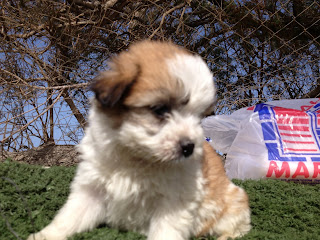Castration of Stray Animals
What is a ‘Stray’?
‘Stray’ is a general term given to any domestic animal found roaming freely without human
supervision. Strays depend on humans for most of their essential resources, such as food,
although this may be found indirectly from rubbish discarded by humans. Because of this
dependence on humans, stray animals are found roaming within and around human settlements.
‘Community animals’ are a type of stray animal that is cared for and provisioned by a particular
community, but is still allowed to roam freely.
Animals that live and breed successfully independent of human society are termed ‘feral’ and are
usually found outside, or on the fringes of human settlement.
Why are Strays a Problem?
Stray animals can become a problem for many reasons: they carry diseases that can be passed
to humans and other animals (such as rabies), they can cause road accidents, harass citizens,
damage property and pollute the environment.
There are also many welfare concerns for the stray animals themselves: disease, hunger,
aggression between animals and persecution by humans in the form of cruelty, abuse and
inhumane methods of killing.
Where Do Strays Come From?
When tackling the issue of stray animals, it is vital that we consider where these animals are
coming from and address these sources. Irresponsible animal ownership, uncontrolled breeding
and the carrying capacity of the environment must all be considered.
Irresponsible Animal Ownership
• Some owners allow their animals to roam unsupervised. These animals then become part of the
stray population and cause the same problems as un-owned stray animals.
• Owners may also abandon their animals in the streets when they no longer want them. This
can be a common fate for unwanted litters of puppies.
Uncontrolled Breeding
• Owned animals may be allowed to breed uncontrollably, leading to the problem of abandonment
or over-capacity of re-homing centres.
• Breeding within the stray population can produce the next generation of stray animals.
However, the survival rate of animals born stray may be low.
• Puppy farms and breeders can lead to a surplus of companion animals. This problem is made
worse if the conditions in which the animals are raised are poor, as the puppies and kittens may
be sick and poorly socialised, making them unsuitable pets and more likely to be abandoned.
Considering all of the above, there is really only one solution to the problem: NEUTER AS MANY AS POSSIBLE!!
We are lucky enough to get some help with this big issue. In cooperation with the mayor's office, we were able to invite volunteers of a well known German group of doctors and we have just finished this year's second round of castrating a good deal of cats and dogs from Paleohora and nearby villages, making sure that well over 200 animals won't be adding any more offspring to the already way too large number of unwanted animals.
Clearing up a few other health issues along the way as well :)
Enough people though are still opposed to the idea of "altering" an animal's natural way. A lot of convincing and educating still need to be done to really make a discernable difference on the streets but i believe we are on the right track!
Paws up for neutering!




















